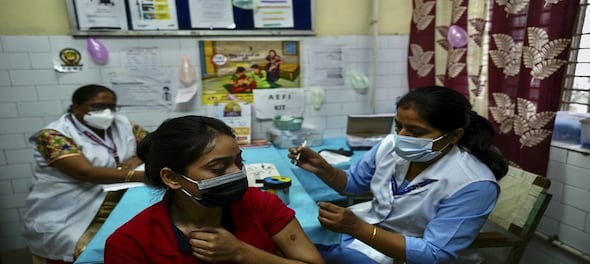
The number of Omicron cases in the country crossed the 100 mark on Friday, triggering fresh fears of a third wave. According to the Union Ministry of Health and Family Welfare, Omicron cases have been reported from 11 states and Union territories so far.
Maharashtra, with 32 cases, has added the most to the national tally, data from the ministry showed. Delhi, with 22 cases, had the second highest number of cases.
The government also issued advisories to avoid unnecessary travel and crowded spaces. Ever since Omicron became a ‘variant of concern’, guidelines were issued for states to take precautionary measures. On a daily basis, trajectory across the world, along with the emerging evidence, is being analysed to identify actions to be taken on priority.
Global threat
The number of daily Omicron cases around the world is increasing rapidly, particularly in the UK, Denmark, Norway, and South Africa. The countries with a surge in Covid cases are also reporting a high incidence of the Omicron variant.
The World Health Organisation (WHO) had recently warned that the Omicron variant spreads at a rate not seen with any other variant.
“Currently, 77 countries have reported cases of Omicron, but the reality is that the variant is probably in most countries, although it has not yet been detected,” said the Director-General of the WHO, Tedros Adhanom Ghebreyesus, at a press conference.
The variant's global spread suggests it could have a major impact on the COVID-19 pandemic, and the time to contain it is now, before more Omicron patients are hospitalised, Ghebreyesus said.
“We should not dismiss Omicron as mild. Even if Omicron does cause severe disease, the number of cases could once again overwhelm health systems. Based on current limited evidence, Omicron appears to be spreading at a faster rate not seen with any other previous variant. Emerging data from South Africa suggests increased risks of infection with Omicron,” says Poonam Khetrapal Singh, Regional Director, WHO South-East Asia.
Vaccination vibrancy
The government needs to make a quick reassessment of its strategies and speed up the vaccination programme. It is however not very clear whether the vaccine is effective against the variant or not.
A new study by Columbia University says the Omicron variant is “markedly resistant” to vaccines, and boosters might not do much to help, spelling bad news for the country as Omicron spreads and COVID-19 cases rise nationally.
“A striking feature of this variant is the large number of spike mutations that pose a threat to the efficacy of current COVID-19 vaccines and antibody therapies,” said to the study.
The WHO on Friday issued an emergency use listing to Covovax, Serum Institute of India's version of Novavax Inc's Covid-19 vaccine. The agency said that Novovax's own vaccine is currently under assessment by the European Medicines Agency, and will complete its own assessment of this vaccine once the EMA has issued its recommendation.
India currently has the highest vaccination rate in the world. The average daily doses administered in the country is 74.31 lakh, which is 4.8 times more than that in the United States and 12.5 times more than in the United Kingdom
The country has so far administered 82.82 crore first doses and 53.72 crore second doses. More than 136 crore doses have been administered in the country, which is 2.8 times the total doses administered in the USA (48.6 crore)
The epicentre
On November 26, the WHO designated B.1.1.529 a variant of concern (VOC) because of preliminary evidence of a detrimental change in COVID-19 epidemiology. As a variant of concern, it was named Omicron.
In early November, scientists in South Africa identified the variant in a patient with COVID-19 from Botswana, a country that borders South Africa. Subsequently, the variant was detected in South Africa
According to WHO, Omicron has a large number of mutations, including more than 30 genetic mutations of the spike protein. The spike protein of SARS-CoV-2 is targeted by some of the currently approved COVID-19 vaccines; mutations in the spike protein therefore need to be closely monitored.
Some mutations have previously been associated with increasing transmissibility and making it easier for the virus to bind and attach to cells.
The author, Dr Vanita Srivastava, is an independent science and health writer
Click here to read the author's other articles
(Edited by : Vijay Anand)
Check out our in-depth Market Coverage, Business News & get real-time Stock Market Updates on CNBC-TV18. Also, Watch our channels CNBC-TV18, CNBC Awaaz and CNBC Bajar Live on-the-go!



